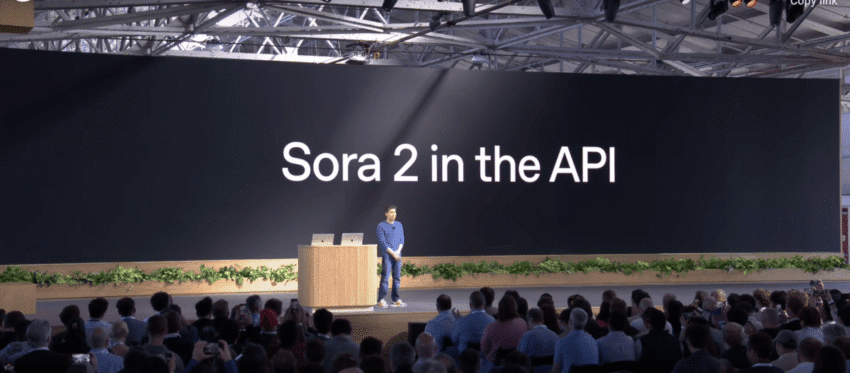
openai ramps up developer push with more OpenAI has announced a series of updates aimed at enhancing its appeal to developers, introducing more powerful models in its API, along with new tools for building applications.
openai ramps up developer push with more
Overview of OpenAI’s Developer-Focused Updates
In an effort to strengthen its position in the competitive landscape of artificial intelligence, OpenAI has unveiled a range of updates designed to attract developers to its ecosystem. These announcements include the introduction of more powerful models in its API, a new agent-building tool, and the capability to create applications directly within ChatGPT. This strategic move is expected to not only enhance the functionality of OpenAI’s offerings but also to foster a vibrant community of developers who can leverage these tools to create innovative applications.
New API Models: Enhancements and Capabilities
One of the most significant aspects of OpenAI’s recent announcements is the introduction of more powerful models in its API. These models are designed to improve the performance and versatility of applications built on the OpenAI platform. With enhanced capabilities, developers can expect greater accuracy and efficiency in their applications, which can lead to improved user experiences.
Performance Improvements
The new models are reported to deliver substantial performance improvements over their predecessors. This includes faster response times and a higher degree of contextual understanding, enabling applications to engage users in more meaningful ways. Developers can harness these improvements to create applications that not only respond to user queries but also anticipate user needs based on previous interactions.
Broader Use Cases
With the enhanced capabilities of the new models, the potential use cases for developers are expanding. Industries such as healthcare, finance, and education can benefit from more sophisticated AI applications that can analyze data, provide insights, and facilitate decision-making processes. For example, in healthcare, AI can assist in diagnosing conditions by analyzing patient data and suggesting treatment options. In finance, it can help in risk assessment and portfolio management.
Agent-Building Tool: A New Frontier for Developers
Another key announcement is the launch of an agent-building tool, which allows developers to create intelligent agents that can perform tasks autonomously. This tool is designed to simplify the process of building complex applications that require a level of autonomy and decision-making capability.
Features of the Agent-Building Tool
The agent-building tool comes equipped with a variety of features that make it easier for developers to create and deploy intelligent agents. Some of these features include:
- Customizable Workflows: Developers can design workflows tailored to specific tasks, allowing for greater flexibility in how agents operate.
- Integration Capabilities: The tool supports integration with various APIs and data sources, enabling agents to access real-time information and perform tasks based on current data.
- User-Friendly Interface: A streamlined interface makes it easier for developers, regardless of their experience level, to build and deploy agents.
This new tool is particularly relevant in sectors where automation can lead to significant efficiency gains. For instance, in customer service, businesses can deploy agents that handle inquiries and resolve issues without human intervention, freeing up human agents to focus on more complex tasks.
Building Applications in ChatGPT: Expanding Functionality
OpenAI has also introduced the ability for developers to build applications directly within ChatGPT. This feature allows for the creation of interactive applications that can engage users in real-time conversations while providing valuable functionalities.
Implications for User Engagement
The integration of application-building capabilities within ChatGPT opens up new avenues for user engagement. Developers can create applications that not only provide information but also interact with users in a conversational manner. This can lead to more engaging experiences, as users can ask questions and receive immediate responses tailored to their specific needs.
Potential Applications
Examples of potential applications that could be built within ChatGPT include:
- Educational Tools: Interactive learning applications that provide personalized tutoring based on user queries.
- Health and Wellness Apps: Applications that offer advice and support for mental health, fitness, and nutrition through conversational interfaces.
- Personal Finance Assistants: Tools that help users manage their finances by answering questions and providing budgeting tips in real time.
By enabling developers to create applications within ChatGPT, OpenAI is fostering an ecosystem where creativity and innovation can thrive, ultimately benefiting end-users with more tailored and effective solutions.
Community Engagement and Developer Support
Recognizing the importance of community engagement, OpenAI is also ramping up its support for developers. This includes providing comprehensive documentation, tutorials, and resources to help developers navigate the new tools and models effectively.
Documentation and Resources
OpenAI has committed to offering extensive documentation that covers the functionalities of the new models and tools. This documentation will serve as a valuable resource for developers, providing guidance on best practices, integration techniques, and troubleshooting tips. Additionally, OpenAI is likely to host webinars and workshops to further assist developers in understanding how to leverage the new capabilities.
Feedback Mechanisms
OpenAI is also implementing feedback mechanisms to gather insights from developers using the new tools. This feedback will be crucial in refining the offerings and ensuring that they meet the needs of the developer community. By actively engaging with developers, OpenAI aims to create a collaborative environment where continuous improvement is prioritized.
Implications for the AI Landscape
The updates from OpenAI have broader implications for the artificial intelligence landscape. As more developers are drawn to the platform, the potential for innovation increases, leading to a proliferation of AI-driven applications across various sectors.
Competitive Landscape
OpenAI’s push to attract developers comes at a time when competition in the AI space is intensifying. Companies like Google, Microsoft, and Amazon are also investing heavily in AI technologies and developer tools. By enhancing its offerings, OpenAI is positioning itself as a leader in the field, capable of attracting a diverse range of developers and fostering a robust ecosystem.
Future Prospects
The introduction of more powerful models, the agent-building tool, and the ability to create applications within ChatGPT signal a promising future for OpenAI and its developer community. As developers begin to explore these new capabilities, it is likely that we will see a surge in innovative applications that leverage AI in ways that were previously unimaginable.
Conclusion
OpenAI’s recent announcements represent a significant step forward in its efforts to engage developers and expand its ecosystem. With the introduction of more powerful models, an agent-building tool, and the ability to create applications within ChatGPT, the company is poised to foster innovation and drive the development of AI-driven solutions across various industries. As the landscape continues to evolve, the implications of these updates will be closely watched by stakeholders across the technology sector.
Source: Original report
Was this helpful?
Last Modified: October 7, 2025 at 2:42 am
1 views















